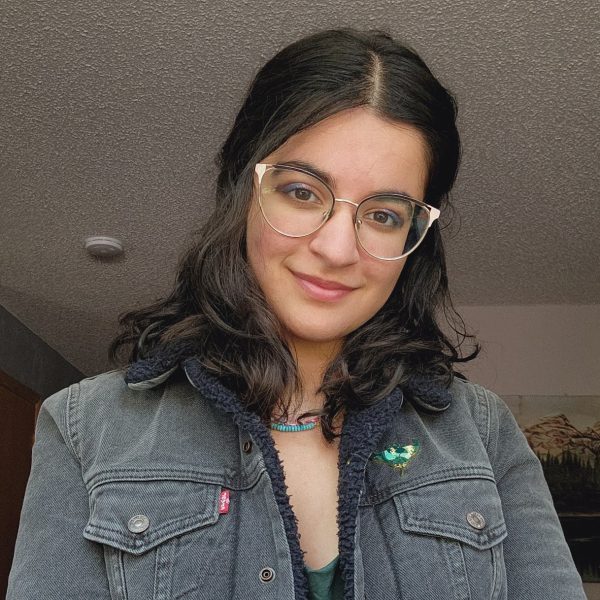With students’ return to campus, many have begun fasting for Ramadan.
Ramadan is the ninth month in the Islamic calendar and is thought to be the holiest. It is the month before Eid. During this time, Muslims fast from sunrise to sunset, focusing on prayer, community and self-reflection.
For Muslim Students Association board leader Mariam Sohail ’26, “Ramadan is one of my favorite times of the year. I love the routine I build throughout the month, and I also appreciate the self-reflection that occurs. I truly feel like a better person by the end of Ramadan.”
Arabic Language Assistant Mawaheb Mehdaoui describes Ramadan as a “purification.” She says that during this time, Muslims “worship more, they pray more” and engage in charity work.
Chaplain Carolyn Fure-Slocum spoke about some of the preparations and accommodations in place for fasting students. The fact that the fast begins and ends before and after dining hall hours poses the problem: How do you eat when you can? Mehdaoui says that Muslims here on campus are fasting for over 14 hours per day.
In response to this, the Chaplain’s Office has met with the Muslim Student Association, Bon Appetit and college staff leaders in order to discuss the best ways to get food to students. The college has made accommodations for meal plans, and students are able to pick up breakfast and dinner the night before.
According to Mehdaoui, “They reached out maybe a month [before Ramadan] if we wanted to change to five meals per week.” She likes this because “we are not eating breakfast or lunch, sometimes not even dinner because we are having it together.”
Mehdaoui says this is her first time fasting away from her family in Tunisia.
“It’s so different because of the traditions and because of the food. You’ll be fasting the whole day and everyone will be eating, it’s not the same as everyone fasting and everything being locked—no coffee shops, no markets.”
For Mariam, this is also her first time fasting away from home. “I would definitely say that fasting here on campus is harder [. . .] I really miss my family and the time we would spend together throughout this month. Also, with the Carleton workload, I have found it more challenging to balance fasting and homework than I did in high school.”
Along with adjusted meal plans, rooms have been reserved in upper Sayles for students to gather for praying and fast-breaking. The MSA has an extensive calendar of larger fast-breaking gatherings — Iftars — as well to create a sense of community among Muslim students. They have also made arrangements to hold Iftars with St. Olaf’s Muslim community.
Sohail says, “Every Friday, MSA likes to get a catered Iftar from a restaurant in the Twin Cities. In terms of preparation for this, we have to arrange the catering menu, buy the drinks, get the plates and utensils. It’s not anything too bad, and the food has been really good so far!”
According to Sohail, MSA is also hosting a campus-wide Iftar event on April 14. She doesn’t have all the details out just yet, but says to “keep a lookout for an email from the MSA to learn more about it!”
Mehdaoui says she is “really impressed with the way they are managing Ramadan here” with Iftars, praying and discussions being led every day.
In predominantly Muslim countries, work days are adjusted for Ramadan. In Tunisia, for example, Mawaheb says that people don’t work for the last four hours of the fast. “It’s not easy, but that’s what makes it special,” she says.
Because fasting can make focusing difficult, especially in a rigorous academic environment, the Chaplain’s Office has sent out messages to faculty notifying them to be aware of potential accommodations or absences students may need during this time. The Chaplain’s Office sends out similar messages for other religious holidays and fasts.
For Mehdaoui, instead of hosting the language table at lunch, she is hosting weekly Iftars for her Arabic students. She finds the accommodations available “really accessible.”
The Chaplain’s Office has also arranged for transportation to mosques for prayer, specifically Tarawih. Mehdaoui says, “Tarawih is the prayer after the Isha prayer, after the fifth prayer of the day. We are praying more in Ramadan, and generally in these prayers we recite the Quran for the whole month.”
“I was impressed that they are providing drivers every day because [the mosque] is in Minneapolis, not in Northfield,” says Mawaheb.
MSA and the Office of the Chaplain are also planning for the celebration of Eid, which will be held in the Great Hall on April 23 at 5 p.m. The Chaplains are arranging food and transportation and have invited former Muslim Chaplain Iman Jafri ’15 to serve as a guest speaker.
Additionally, the Middle Eastern and North African student organization is hosting the Grand Iftar on April 9 at the Great Hall. Students interested in attending can RSVP online.












